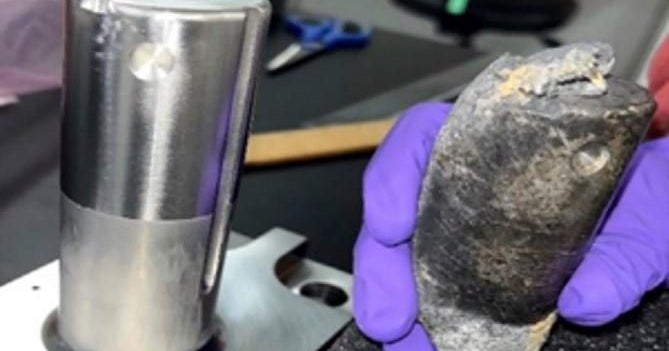Tech
Florida family whose roof hit by debris from space station sues NASA for damages

A Florida family whose house was hit by a chunk of space junk earlier this year announced last week that they are suing NASA for damages.
A cylindrical object tore through the home of Alejandro Otero in Naples on March 8. He told CBS Fort Meyers, Fla., affiliate WINK-TV that his son called him about the crashing object while he was on vacation.
“I was shaking. I was completely in disbelief. What are the chances of something landing on my house with such force to cause so much damage,” Otero said. “I’m super grateful that nobody got hurt.”
The object was subsequently taken to the Kennedy Space Center in Cape Canaveral for analysis.
NASA confirmed in April that it was a metal support used to mount old batteries on a cargo pallet for disposal. The pallet was jettisoned from the space station in 2021 and the load was expected to eventually fully burn up on entry into Earth’s atmosphere, but one piece survived.
Now, the family is pursuing NASA in compensation for damages. The law firm Cranfill Sumner said in a press release this week that it filed a claim on behalf of Otero and his family.
The family cites damages for non-insured property, business interruption, emotional and mental anguish, and the cost of assistance from third-party agencies.
Attorney Mica Nguyen Worthy said in a statement that this incident is a real-life example that space debris is a “real serious issue because of the increase in space traffic in recent years.”
“My clients are seeking adequate compensation to account for the stress and impact that this event had on their lives,” attorney Mica Nguyen Worthy said in a statement. “They are grateful that no one sustained physical injuries from this incident, but a ‘near miss’ situation such as this could have been catastrophic. If the debris had hit a few feet in another direction, there could have been serious injury or a fatality.”
Worthy said the case seeks to set a precedent for space debris claims in the private and public sectors.
NASA has six months to respond to the claims.









